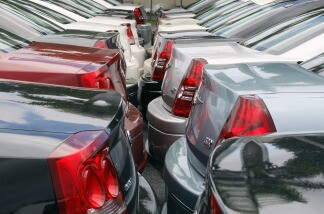It's a big ticket item. Beyond buying a home, the purchase of an automobile is often the biggest financial transaction any of us will ever make.
But, face it, we are often boneheads about it. We're seduced by a sexy vehicle we can't really afford, manipulated by skillful salespeople, and less than diligent about understanding some of the hidden costs of ownership.
Here's a very quick primer that's designed to increase your automotive financial literacy.
Buy only as much car as you can afford
Determine how much you can comfortably afford to spend. If you are taking out a loan, remember that your monthly car payment is only part of the price. You need to figure in the cost of insurance, gasoline, repair and maintenance. Tell yourself that you'll truly enjoy the peace and freedom of driving a car you can actually pay for.
Be wary of long term loans
There is a trend toward five, six and even seven year loans for cars. Taking out a longer loan will lower your monthly payment (though not as much as you think.) It will also guarantee that you will pay much more overall, and your car will be worth much less when you send in that last payment. Try to stick to a traditional 36-month loan, or at the very least, a 48-month note.
Consider buying used
If the car you want is beyond your budget, find alternatives, or consider buying a late model used car. During the recession, prices for used cars went up, but they are on the wane now, and many dealers have big inventories of lease-return cars, so you can often get a very good deal. For reference, Consumer Reports maintains a list of the best used cars.
Keep it nice
Once you've driven your car off the lot, treat it with love and care. Make sure it gets all its scheduled maintenance, and that you keep all the records.
Sell Smart
When the years and the miles pile up, and it's time for a new car, you'll need to decide if you want to trade in your old vehicle, or sell it as a private party. You'll get more money if you choose the latter option, but you'll also have to do more work. There's no sense in fixing up your car if you are handing it over to a dealer, but if you want to sell it yourself, spiff it up as much as possible. Make sure you have all those records to share with potential buyers. Have the title, smog certificate if required, and a release of liability form, so you can seal the deal on the spot.
Then it's time to start the cycle over again, and test your automotive financial literacy.
Susan Carpenter is auto and motorcycle critic for the OC Register. She joins Take Two on Thursdays for The Wheel Thing.



